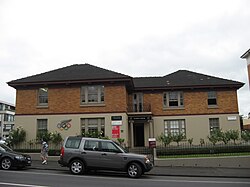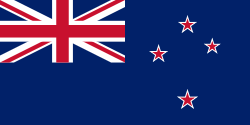 | |
| Country/Region | |
|---|---|
| Code | NZL |
| Created | 1911 |
| Recognized | 1919 |
| Continental Association | ONOC |
| Headquarters | Auckland, New Zealand |
| President | Liz Dawson |
| Secretary General | Nicki Nicol |
| Website | olympic |
The New Zealand Olympic Committee (before 1994, The New Zealand Olympic and Commonwealth Games Association) is both the National Olympic Committee and the Commonwealth Games Association in New Zealand responsible for selecting athletes to represent New Zealand in the Summer and Winter Olympic Games and the Commonwealth Games. [1]
Contents
While a founder member of the International Olympic Committee, New Zealand did not send its own team to compete until the Games of the VI Olympiad (Antwerp 1920), though at the 1908 and 1912 Summer Olympics New Zealand and Australia competed as "Australasia". New Zealand has sent a team to every Summer Olympic Games since 1920, though only a token team of four went to the 1980 Summer Olympics at Moscow due to the boycott. New Zealand first competed at the Winter Olympics in 1952, but did not compete in the 1956 or 1964 Winter Olympics.
New Zealand has sent a team to every Commonwealth Games since the first in 1930, which was held in Canada and then called the British Empire Games. They are held every four years, in between the Olympic Games. [1]


